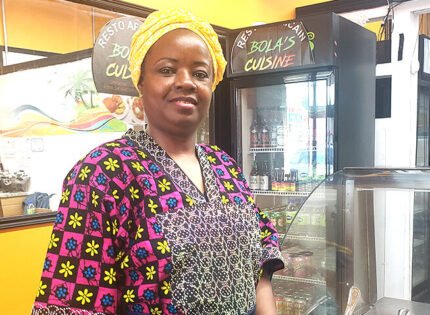
XENOPHOBIA ON THE RISE IN SOUTH AFRICA
According to reports by South African police, five people have died in the violence that has spread around Johannesburg. The nationalities of the deceased have not been released and the circumstances of the deaths remain unclear as police fight to quell the situation.
The Road Freight Association of South Africa estimates that more than 200 people have been killed in attacks targeting foreign truck drivers in South Africa. The organization says that well over 1,000 vehicles have been destroyed in the process.
The violence is believed to be as a result of the strike by the South African truck drivers who were protesting the employment of foreign drivers. They blocked the roads and even burnt trucks belonging to foreigners. The restlessness spilled over to the general population and protestors begun setting fire and looting businesses owned by foreigners.
A large number of the foreigners affected have been Nigerian. And the Nigerian Minister for information and culture has come out strongly to condemn the attacks terming them as “deeply disturbing.”
Nigeria has pulled out of the ongoing World Economic Forum in Cape Town and also plans to recall its ambassador to South Africa in protest against the attacks.
Theories of how foreigners affect the country’s fortunes run wild and with an unemployment rate of about 28% youth are quick to protest against foreigners who could be “stealing their wealth” and “taking our jobs.”
Xenophobia has been a long-standing problem in South Africa, which the government has been hesitant to take on. A similar skirmish erupted in 2008, which saw many other Africans killed.
Perhaps failing to deal with the legacy of apartheid and its offshoots is what has birthed present day xenophobia.

KENYA STRENGTHENS TIES WITH CARIBBEAN NATIONS
The governments of Kenya and Barbados have signed a South-South cooperation agreement that will see the countries form higher education ties among other benefits
Kenyan President, Uhuru Kenyatta was in Barbados where he met with Prime Minister, Mia Mottley. They discussed how to better international relations between their countries.
“As we talk about sharing our experiences in ICT, as we talk about what we can do in education, as we talk about what we can do in healthcare and other areas, this has to be backed by a much stronger platform of economic cooperation and linkages. This is what will get our people to move,” President Kenyatta is quoted as saying.

“We want to share experiences but we have also to be practical hardnosed economic diplomats who look at each other as people who complement not compete with one another. We need to try and see how we can take advantage of our close ties for the benefit of our people,” he added.
Prime Minister Mottley lauded the meeting saying it proved that the two countries have made significant progress in forging deeper and better relations.
“I want to thank His Excellency President Uhuru Kenyatta for making this visit this week and for literally allowing us to enter into the future with a level of cooperation and partnership between our two countries and our two regions,” Prime Minister Mottley said.
Under the deal, Kenya will have medical students trained in Barbados, and in exchange, their Barbadian compatriots will visit Kenya for internship opportunities. It also states that the University of the West Indies, will enter into student and faculty exchanges and other such joint initiatives with Kenya’s University of Nairobi and Kenyatta University.
Noting that Barbados has a high literacy rate compared to Kenya, Kenyatta stated that education presents a potential area for the two countries to further collaborate through sharing of experiences and expertise.
Barbados and Saint Lucia are also interested in establishing an Embassy in Kenya.
















